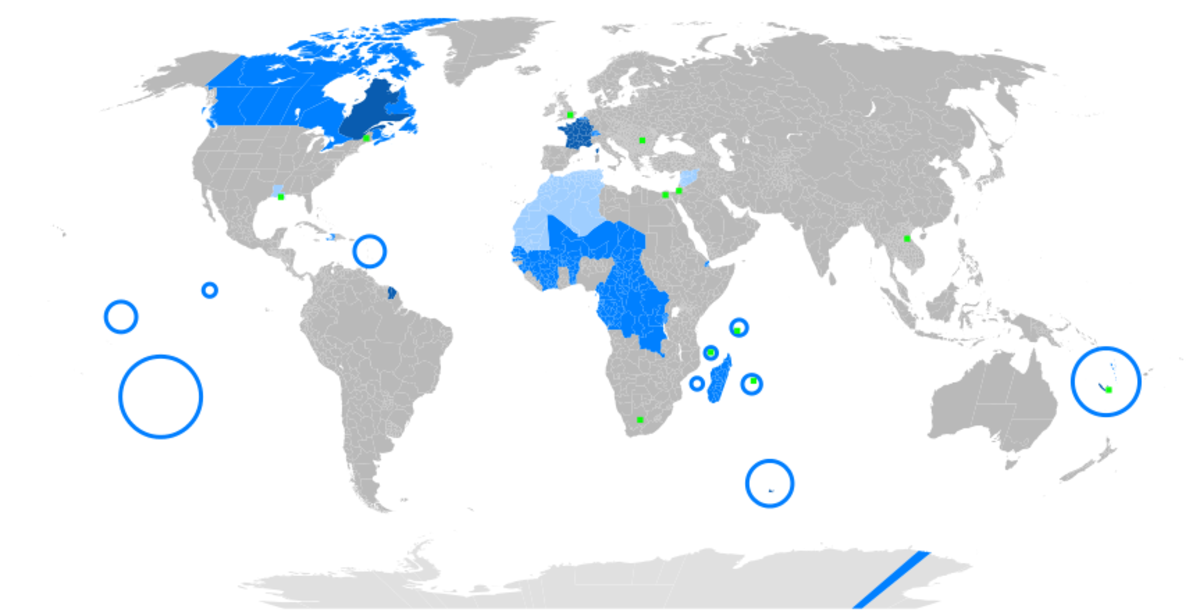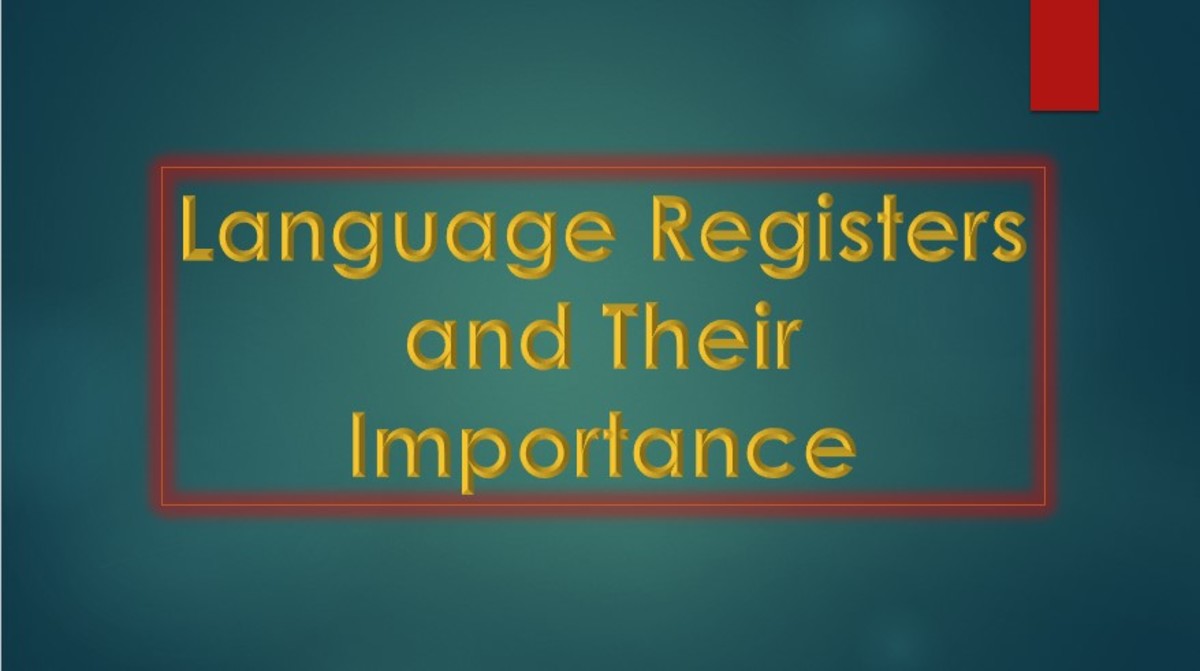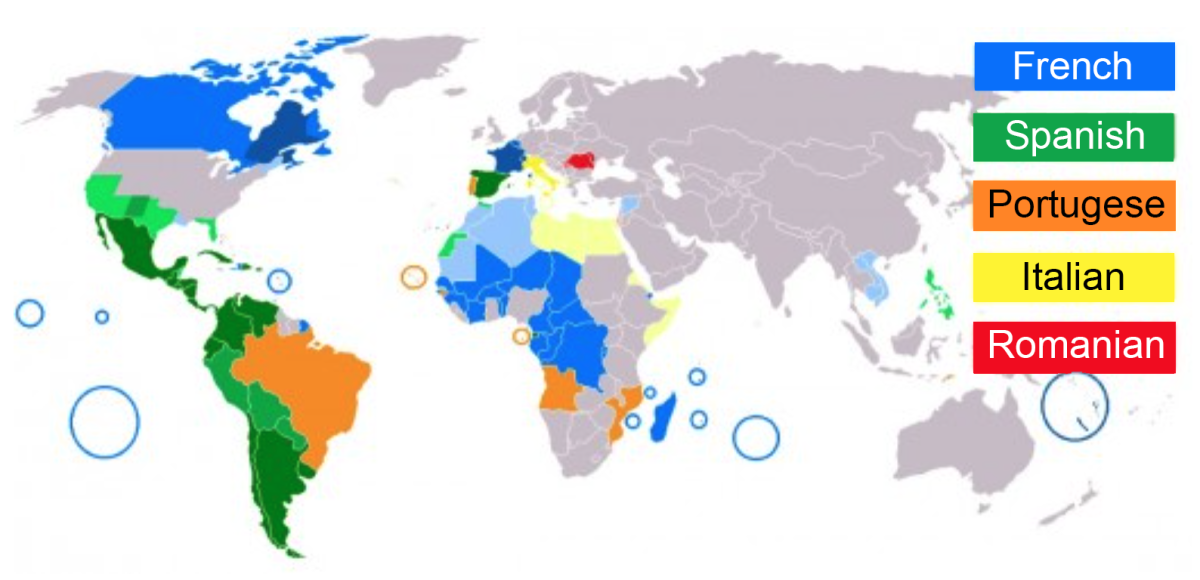A Pecking Order of Languages
Some countries are said to be neutral. The meaning of this may vary; in World War 2, when Ireland was officially neutral, some Irish said that they knew perfectly well whom they were neutral against. Some countries, like Switzerland and Sweden (they are actually two different countries), have remained "neutral" by hiding the money of all parties, or by exporting weapons to all parties (officially only to countries who would never use them, as Sweden is a peace-loving country, but if the buyer in his turn sells them to someone else, we don't see it).
My own country - Sweden - managed to keep neutral during both world wars, and during the cold war, at least officially; during the cold one, we very much knew whom we were neutral against.
Well, officially we were only non-aligned in time of peace, in order to be neutral in time of war; nowadays, the last part has been removed (and it is a matter of definition whether we have war or peace just now; Sweden is helping NATO to murder in Afghanistan, and a recent WikiLeak has shown that US diplomats are regarding the Swedish minister of foreign affairs as "a medium size dog with a big dog attitude").
From a cultural point of view, Sweden is not neutral at all. Our popular music is entirely dominated by British and US imports - and when we export something of our own, such as ABBA, even this is actually a part of the Anglo-Saxon tradition. (Even when ABBA sang in Swedish, they used the English pronounciation of "Waterloo" - evidently not knowing hat Waterloo is situated just outside Brussels, and that it's a Flemish name, not an English one.)
A country's degree of neutrality may also be judged by looking at its selection of languages in public life and in literature. During the years prior to the fall of the Berlin Wall, when English was the dominating language in the West while Russian was supposed to play a similar role in the East, I had had the opportunity to visit several European countries at both sides of the iron curtain, and I couldn't avoid noticing that public signs in Russian were very hard to find in the Eastern "satellite states", such as Hungary and Poland, while such signs in English abounded in the "free countries" of the West, including those who were supposed to be neutral, or at least non-aligned.
A question: how much literature is translated from English to other languages, and how much from other languages to English?
And how much from other languages than English to other languages than English?
There is a pecking order of languages, just as there is one of chickens. After World War II, English became the top chicken of languages, which means - among other things - that more books are translated from English to other languages,
sometimes without really deserving it, than vice versa.
In English-speaking countries, relatively few books are translated at all. Of the books published in the USA, more than 90 % are originally written in English. In my own country, Sweden, only about half of the books published each year are originally written in Swedish. All the others are translated - but most of them from English.
Evidently then, the Swedish language is not at the top of the pecking order; but neither is it at the bottom. Danish and Norwegian are sufficiently close to Swedish for the three languages to be mutually understandable, at least when written; but it is far more common for Danes and Norwegians to read Swedish texts than the other way around.
Finland is a special case. The Finnish language is not at all similar to the three Scandinavian languages - it isn't even Indo-European; but for many centuries, up to the year 1809, Finland was part of Sweden, and even during the country's period as a Grand Duchy under the Russian Czar, the Swedish language kept its position in culture and administration. Even after full independence in 1917, Finland remained officially bilingual. Today, less than 6% of its population are native speakers of Swedish, but the study of Swedish is still compulsary for the Finnish-speaking majority. In Sweden, there is a corresponding Finnish-speaking minority, but the Swedish-speaking majority here normally doesn't study Finnish.
As a matter of fact, Sweden is more and more orienting itself toward the Anglophone world. German - which was the first foreign language for many Swedes right up to the end of World War II - has since then been steadily losing terrain in the country, and for many years, more Swedish books were translated into German than vice versa - and the same may be said about the relation between the Swedish book-market and e. g. the Polish and Czech ones.
So it is evident that cultural communication is going mainly from the higher levels of the pecking order to the lower ones. A consequence of this will be that the top chickens tend to be, or at least become, the most stupid ones.
If your mother-tongue happens to be English, at the present stage in history (it was different for poor old Shakespeare, who wrote his plays in a rather obscure language spoken on an island in the periphery of Europe), then you have every chance to remain ignorant about the possibilities to think in other ways than those dictated by the structure of the English language.
In Britain as well as in the USA, it is difficult to make school children interested in the study of foreign languages, and as I happen to be a literary translator, I have from time to time had some problems when translating a text by a monolingual writer, who just can't understand the difference between concepts of logics and conventions of language.
And as the German author Johann Wolfgang von Goethe once said: "A man who does not know a foreign language is ignorant of his own."
If, on the other hand, your mother-tongue has a smaller number of speakers, than you just have to study at least one foreign language if you wish to get anywhere at all, whether you like it or not.
Thus, the native speakers of those languages who have the greatest influence in the world will automatically be the least fit to exercise this influence.
This could have been one of the laws formulated by Parkinson, but I don't think he did it; Parkinson's law was formulated by an Englishman.
At present, those of us with a mother-tongue that is not dominating the world have a choice:
Shall we accept remaining a cultural satellite of USA's? (And perhaps not only a cultural one.)
If not, what alternative should we choose instead?
Should we isolate ourselves and be enough unto ourselves?
Hardly possible, and even if we should succeed, perhaps we would end up as stupid as those in power - but without the power.
Should we let the Russians dominate us instead?
Too late, I think. Russa today is not the super-power that the Soviet Union used to be.
Or the Chinese?
Well, China is coming forward at the economic plane, buying itself into the USA and several other countries; but as yet, the Chinese language is not propagated.
Perhaps it will never be, however powerful China becomes. The ancient Romans propagated the Latin language mainly in the Western half of their empire; the dominating language in the Eastern half was Greek. And when Sweden was at the peak of its power in the 17th century, controlling several areas in northern Germany, those areas did not begin to speak Swedish. It was rather the other way around - in the protocols of the Swedish parliament at the time, one may find speeches in both Swedish and German, and even Dutch.
The European Union does not have one official language. Officially, the official languages of all the member-states are equal. As this would cost a lot in translating and interpreting, three languages - English, German, and French - are, however, more equal than the others (primi inter pares, as the Emperor Augustus expressed it, before George Orwell gave the same concept a more catching formulation).
Any strivings to make English the only language of the union is energetically opposed by France and some other countries. Italy and Spain would like to add their languages to the three who are already privileged.
Besides, in so far as English is used as an international Lingua Franca, it is normally not the complete language, not easily learned by people with another mother-tongue, but a more or less crippled variety called "Globish".
It should perhaps also be noted that the place for the English language at Internet - who once started
as completely anglophone - is growing absolutely, but shrinking proportionately; and that the quality of Web English, even when written by native Anglophones, is quite often so miserable that even people with other mother-tongues can't help noticing it; even the natives have great problems with English spelling.
Latin? Some have proposed it, and it is true that Radio Finland is broadcasting news in Latin every weak.
But the Vatican Radio doesn't, which is quite interesting, as Latin is still the official language of the Roman Catholic church.
On the other hand, Vatican Radio does broadcast in Esperanto (and a lot of other languages).
So well, that might be an idea after all.
A grammar more simple than Latin, a spelling more simple than English, and in contrast to Globish it is indeed a complete language, with its own literature, both originals and translations (including Bible, Shakespeare, and Alice).
Besides, almost everyone who uses Esperanto is using it as his second language, or third, or... well, normally not as the first, anyway, so it is not really part of the pecking order.
Oh, there is a small number of people who grew up with parents who spoke Esperanto to each other, so Esperanto is actually their mother-tongue; but not the only one. They have at least one more native language, or two, or three - if the parents speak different languages, and the place where they grow up is dominated by a third - and in any case, they have not attended an Esperantophone school. And they are dispersed in many countries, so they really don't have any special position as group.
As everyone who is speaking or writing Esperanto knows at least one more language, Esperantophone culture and literature can hardly be enough unto itself, as the Anglophone one tends to be. Esperantists form a language community of bilinguals, so they tend to have a wider perspective than monolinguals, including some bigshots in the country that happens, for the time being, to be the only super-power.
And as Esperantophone writers and publishers work in so many different countries, with different political systems and cultural backgrounds, Esperantophone literature has turned out to be rather difficult to censure - somewhat ironic as the initiator of the language happened to be the son of an official censor in Czarist Russia.
Actually, when an early Esperantophone magazine got problems with the Russian censorship, it just moved its seat to Sweden.
And last not least: by using Esperanto, we will not contribute so much to the dominance of international life by people who aren't able, and don't want to be able, to understand the thought of people who are not part of their own culture.








